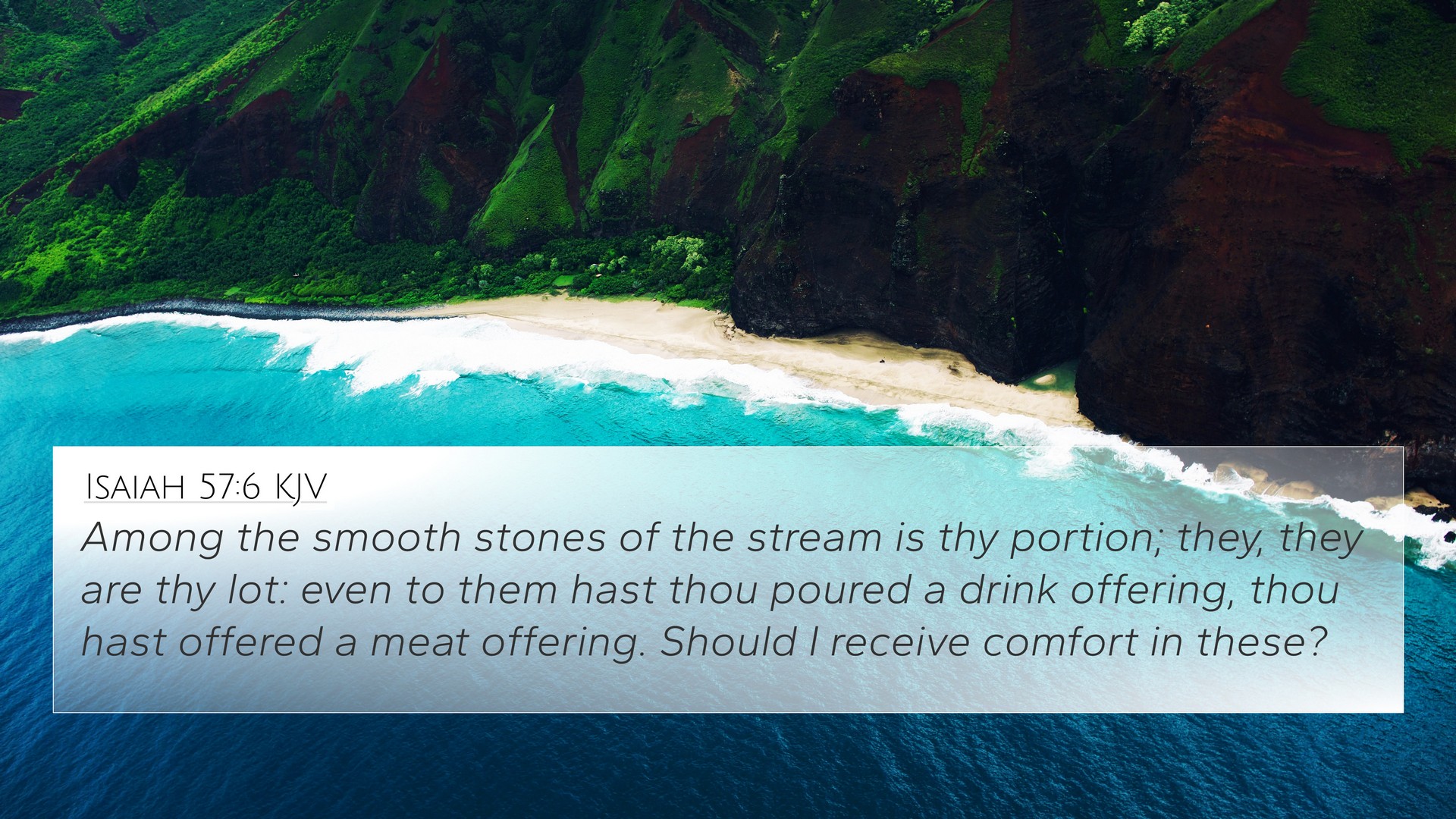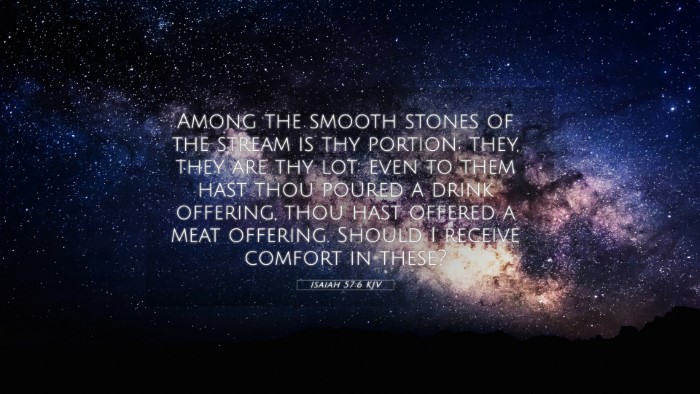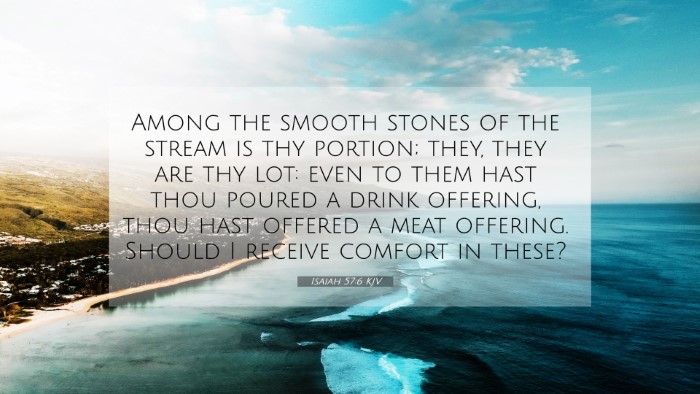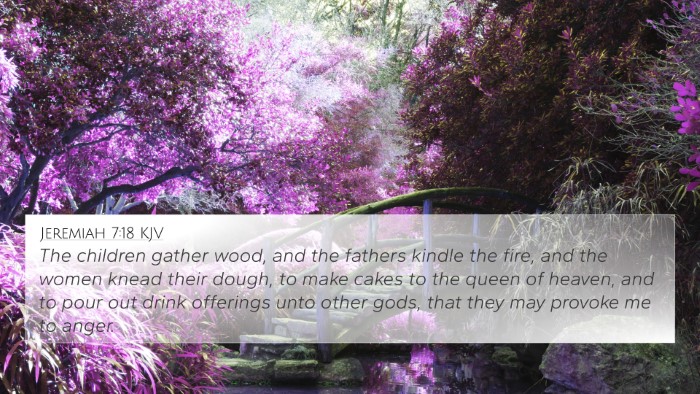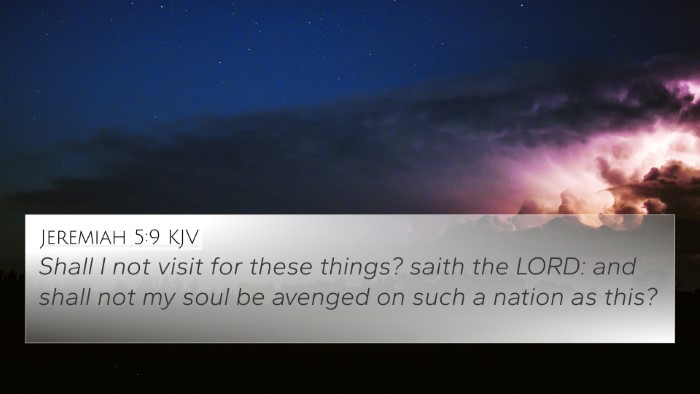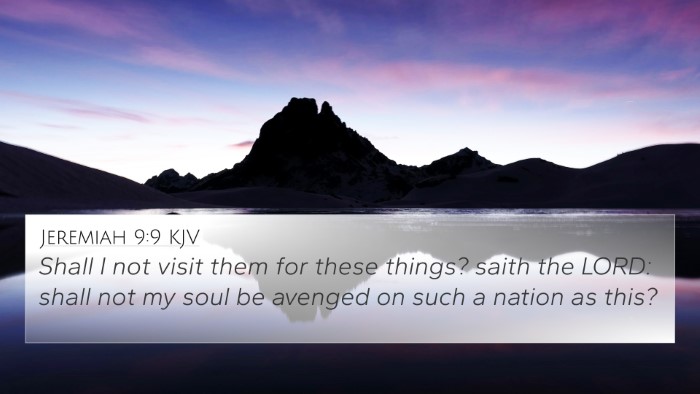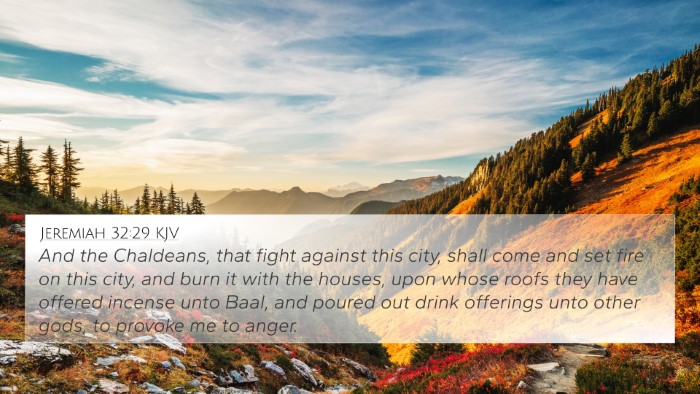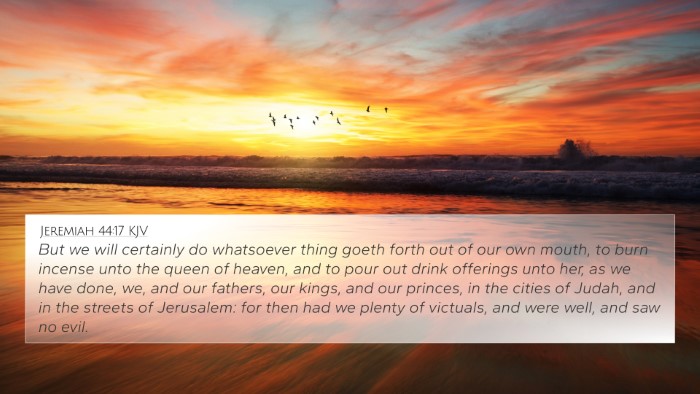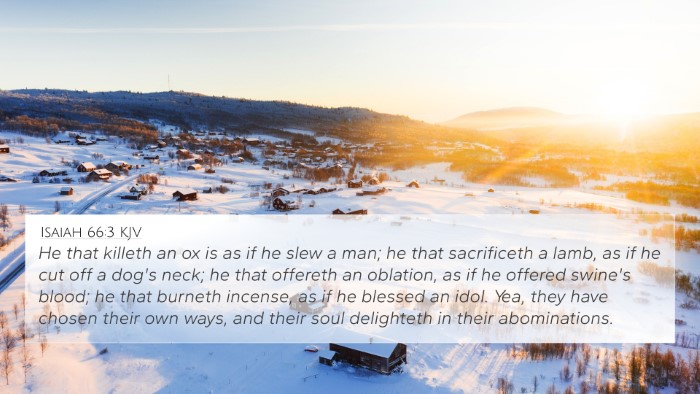Understanding Isaiah 57:6
Isaiah 57:6 states, "Among the smooth stones of the stream is thy portion; they, they are thy lot: even to them hast thou poured a drink offering, thou hast offered a meat offering. Should I receive comfort in these?" This verse presents a stark contrast between idol worship and the genuine worship of the Lord, revealing deep spiritual truths and the futility of seeking satisfaction in false gods.
Summary of Meaning
This verse focuses on the theme of idol worship, the emptiness associated with it, and the Lord’s call for true devotion. It speaks symbolically about the "smooth stones of the stream," indicating the objects of false worship that people often turn to for comfort and satisfaction, contrasting with the true refuge found in God.
Commentary Insights
- Matthew Henry's Commentary: Henry highlights that idolaters, represented by "smooth stones," develop a false sense of security in their rituals, pouring out drink offerings and sacrifices to these lifeless objects. He admonishes that such practices are utterly futile and does not please God.
- Albert Barnes' Notes: Barnes explains that the verse emphasizes the absurdity of relying on idols for support and encourages readers to contemplate the spiritual emptiness that comes from such reliance. He also points out the rhetorical question about God’s comfort in these practices, further underscoring the contrast between true and false worship.
- Adam Clarke's Commentary: Clarke differentiates between the natural resources and blessings provided by God and the artificial satisfaction found in idolatry. He argues that God desires heartfelt worship rather than mere rituals devoid of sincere devotion.
Cross-Referencing Biblical Texts
This verse resonates with several other biblical passages that discuss themes of idolatry versus true worship:
- Isaiah 44:9-20: Discusses the futility of idol-making.
- Jeremiah 2:13: Highlights how forsaking God leads to emptiness.
- Psalm 115:4-8: Describes the lifelessness of idols and their makers.
- 1 Corinthians 10:20-21: Warns against participating in idol worship while attempting to commune with God.
- Exodus 20:4-5: Advocates for the worship of God alone and the prohibition of idols.
- Matthew 6:24: Affirms the impossibility of serving both God and material wealth.
- Hosea 4:12: Refers to the people consulting wooden idols and seeks guidance from the spirit of whoredom.
Thematic Bible Verse Connections
The exploration of Isaiah 57:6 leads to a greater understanding of the spiritual dangers surrounding idolatry, emphasizing the need for deep, genuine worship.
- Spiritual Emptiness: Many verses, like 1 John 5:21, warn against idol worship.
- True Worship: John 4:24 calls for worship in spirit and truth.
- Repentance from Idolatry: Acts 17:30 encourages turning to God from false idols.
- God's Sovereignty: Isaiah 45:20-22 emphasizes that salvation is found in God alone.
Practical Application
Understanding Isaiah 57:6 provides profound insights into our modern lives. It serves as a reminder to seek fulfillment and comfort in God rather than in worldly distractions.
When studying this verse, Christians are encouraged to reflect upon:
- What "smooth stones" or worldly comforts might they be clinging to?
- How can they ensure that their worship is directed to God in sincerity and truth?
- What practices can they adopt to strengthen their relationship with God and avoid the seduction of false idols?
Conclusion
Isaiah 57:6 encapsulates critical truths about the nature of worship and the importance of directing one's heart toward God. Through the analysis provided by esteemed commentators like Matthew Henry, Albert Barnes, and Adam Clarke, we grasp the message that God desires genuine commitment, and this theme is echoed throughout the scriptures.
By cross-referencing this verse with others, we gain deeper insights into the risks of idolatry and the joy of true worship. Exploring these interconnected themes enriches our knowledge of the Bible and helps us grow in faith.
